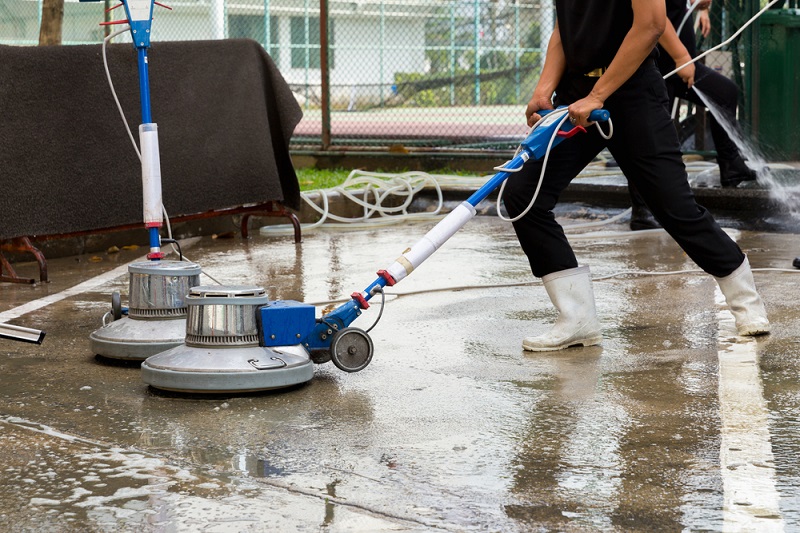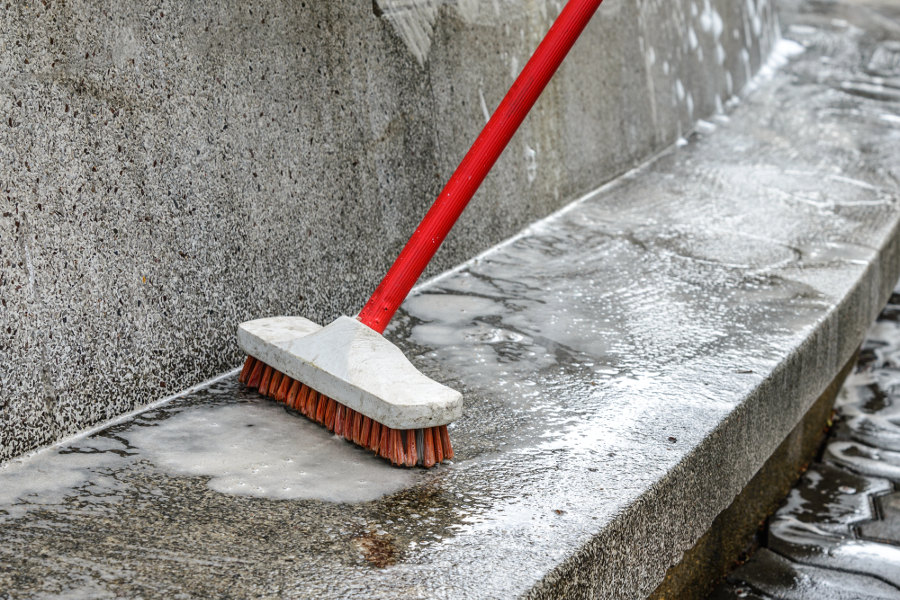Maintaining the cleanliness of concrete floors can be challenging due to their porous nature and susceptibility to stains. Choosing the right concrete floor cleaner is essential for keeping these surfaces looking pristine and extending their lifespan. This blog will guide you through selecting the best concrete floor cleaner and provide tips on how to use it effectively to achieve the best results.

Why is Choosing the Right Concrete Floor Cleaner Important?
Concrete floors, whether in a garage, warehouse, or commercial space, endure a lot of wear and tear. They are exposed to dirt, oil, grease, and other contaminants that can penetrate the surface and cause unsightly stains. Using an appropriate concrete floor cleaner ensures that these contaminants are effectively removed without damaging the floor. Moreover, a high-quality cleaner can help maintain the floor’s appearance and prolong its life, making it a worthwhile investment.
Types of Concrete Floor Cleaners
There are several types of concrete floor cleaners available, each suited for different cleaning needs:
- PH-Neutral Cleaners: These are mild cleaners that are safe for regular use and are ideal for routine cleaning of concrete floors.
- Alkaline Cleaners: These are stronger than pH-neutral cleaners and are effective in removing grease, oil, and other organic stains.
- Acidic Cleaners: These are used to remove mineral deposits, rust stains, and other tough stains but should be used sparingly as they can be harsh on the concrete.
- Enzymatic Cleaners: These cleaners use enzymes to break down organic materials and are particularly effective for removing pet stains and odors.
How to Choose the Best Concrete Floor Cleaner
When selecting a concrete floor cleaner, consider the following factors:
- Type of Stains: Identify the type of stains you need to remove. For grease and oil stains, an alkaline cleaner might be the best choice. For rust or mineral deposits, an acidic cleaner may be more effective.
- Frequency of Cleaning: For routine maintenance, a pH-neutral cleaner is usually sufficient and safe for frequent use.
- Safety: Ensure the cleaner is safe for your specific type of concrete and won’t cause damage or discoloration. Also, consider environmental and user safety, opting for non-toxic and biodegradable options if possible.
- Ease of Use: Choose a cleaner that is easy to apply and doesn’t require extensive scrubbing or multiple applications.
Steps to Effectively Use a Concrete Floor Cleaner
- Preparation: Start by removing any loose dirt or debris from the floor using a broom or vacuum. This prevents the cleaner from becoming less effective due to interference from surface dirt.
- Application: Follow the manufacturer’s instructions for diluting and applying the cleaner. Generally, you’ll apply the cleaner to the stained areas and let it sit for a few minutes to penetrate the stains.
- Scrubbing: Use a stiff-bristled brush or a floor scrubbing machine to scrub the floor. This helps to lift and remove the stains from the surface of the concrete.
- Rinsing: Thoroughly rinse the floor with clean water to remove any remaining cleaner and loosened dirt. Using a wet vacuum can help speed up this process and ensure all residues are removed.
- Drying: Allow the floor to air dry completely. Ensure proper ventilation to speed up the drying process and prevent moisture from seeping back into the concrete.
Maintaining Clean Concrete Floors
Regular maintenance is key to keeping concrete floors clean. Here are a few tips:
- Sweep or vacuum regularly to remove loose dirt and debris.
- Use mats or rugs in high-traffic areas to reduce dirt accumulation.
- Clean up spills immediately to prevent stains from setting in.
- Apply a concrete sealer to protect the surface and make it easier to clean.
By choosing the right concrete floor cleaner and following these steps, you can keep your concrete floors looking clean and well-maintained. Whether you’re dealing with everyday dirt or tough stains, the right cleaner can make all the difference in achieving a spotless concrete floor.

